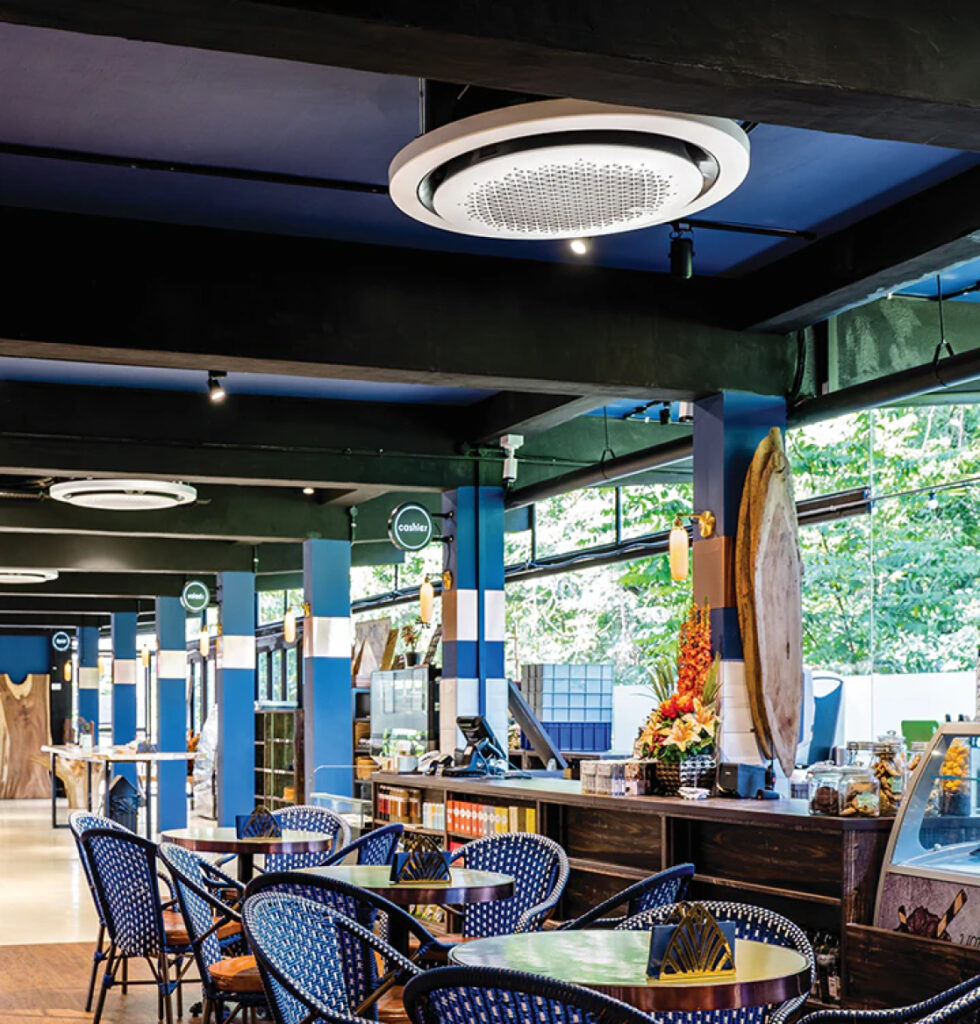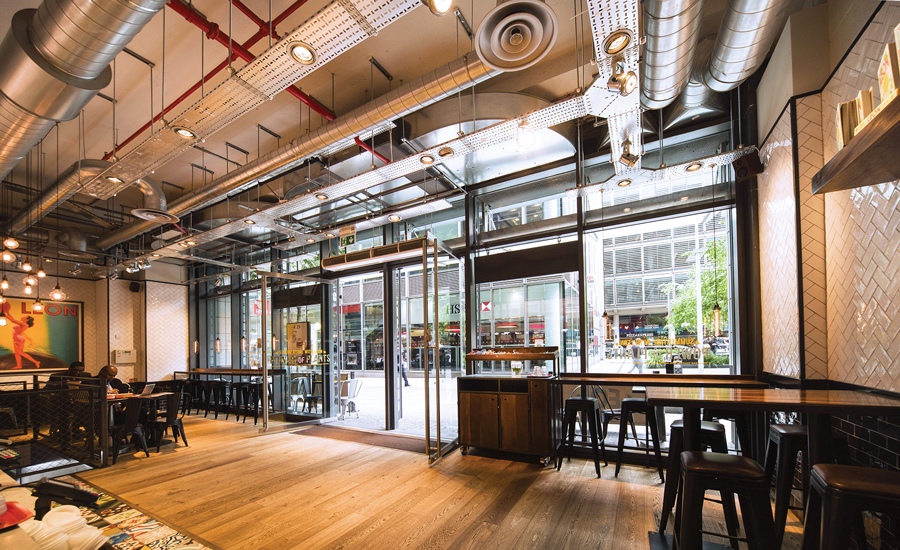As temperatures continue to rise, air conditioning is becoming all the more important for customer and employee comfort
Not that long ago, air conditioning was considered a luxury, but with summer temperatures reaching the high 30s last year adding to already hot conditions inside fish and chip shops, it is quickly creeping up an owner’s wish list.
One of the primary reasons for installing air conditioning is to provide a comfortable environment for diners. A well-regulated temperature can make the difference between a one-time visitor and a loyal customer. It can also influence how long customers stay and whether they order more, leading to higher revenue.
There are staff to consider too. Whether running a takeaway or a restaurant, staff are constantly on the move, working in high-stress and high-temperature conditions (even more so if they are in the kitchen or behind the frying range).
Duty of care
Whilst there is no legal maximum or minimum working temperature, by law employers have a ‘duty of care’ to keep working temperatures to a reasonable level for their staff and to provide clean and fresh air. Effective air conditioning helps achieve this which, in turn, can significantly boost staff morale and productivity. Employees are more likely to perform their tasks efficiently and with a positive attitude when they are not battling excessive heat. Just think how much revenue was lost last summer when the industry saw multiple shops restrict their opening hours or close entirely on extremely hot days.
The function of air conditioning extends beyond just maintaining a comfortable temperature, however. A proper system also improves air quality by reducing humidity and filtering out pollutants, creating a healthier environment. It can even help equipment, such as fridges and freezers, run more effectively as they do not have to fight the temperatures of a hot kitchen.
It’s not surprising then to hear that it’s something Rob Cleveland, director of West-Yorkshire-based Barland Shopfitters is seeing more operators specify when fitting out their shops. He comments: “It’s a lot more cost effective to fit air conditioning than it is to close your shop because it’s too hot to work. Plus, if you’ve got a nice, cool shop, people will come in and sit down and, vice versa, in winter if it’s blasting the heat out people will come to keep warm.”
Selecting an appropriate air conditioning system involves assessing several factors: the extraction from the frying range, doors opening and closing, excess heat when the kitchen is working at capacity, not to mention specific needs of different areas, for instance, dining areas will require a different cooling approach compared to kitchens or storage areas. An expert in heating, ventilation and air conditioning (HVAC) systems will understand all this and, after a site survey, suggest the best set-up for your needs.


Space savers
For small takeaways and restaurants, this may be a wall-mounted air conditioner as it is a good space saver, while for larger restaurants ceiling-mounted or cassette air conditioners evenly spaced around the dining area could be a better option, ensuring a consistent flow of fresh air.
In the kitchen, a ducted system which can handle high temperatures but stays concealed may be preferred. Or even a heat recovery system which moves heat from the kitchen to other sections of the restaurant, improving customer and staff comfort while also promoting sustainability and cost-effectiveness.
Listed buildings can be problematic and, therefore, a water-cooled air conditioning system may be specified. These devices connect to the mains water supply and utilise water to create cold air, eliminating the need for external condenser units and complying with property constraints.
For restaurants with al fresco dining or shops that have doors constantly open, there’s a solution too: an air curtain. Strategically located near the main entrance, they avoid the loss of cool (or warm) air from the dining room, enabling doors to remain open while ensuring customer comfort.
As well as the space, there are practical elements to consider too – can the system handle the smoke, grease and other impurities in the air? Can the current electric load run safely without stressing the system’s capacity? Does it comply with environmental standards and refrigerant laws? Positioning is also paramount as Andy Threlfall, technical and policy director at the Foodservice Equipment Association (FEA), explains: “You need to position the air conditioning unit carefully, not only to avoid draughts but also to make it easy to service the system, which involves a technician removing panels to clean or replace air filters, cleaning the coils and drainage systems. The positioning of the outside unit is equally important and you need to consider factors including planning constraints, additional noise created by the system, the risk of damage by vehicles or vandalism, and access for servicing. Air conditioning systems need to be serviced annually, or bi-annually in some cases, so be aware of the ongoing maintenance requirements and costs of the unit you select.”
More than anything, Barland’s Rob Cleveland recommends having a proper survey carried out and listening to the advice, adding: “This will ensure you have the correct size of air conditioning unit for the space you have. The higher up the kW you go, the more money it costs, so some operators may think they will save some money by getting a lower kW unit, for example, a 5kW compared to 7.5kW, but if it’s not cooling the space down, it’s not worth the initial investment. Listen to what the experts say when they spec it.”
Regular maintenance
Like all equipment, the key to ensuring the longevity and efficiency of air conditioning systems is regular maintenance.
Scheduled servicing can prevent unexpected breakdowns, reduce repair costs, and ensure that the system operates at peak performance. Regular maintenance includes cleaning filters and checking for leaks.
DID YOU KNOW?
A company must be FGas certified to install and service an air conditioning system.








